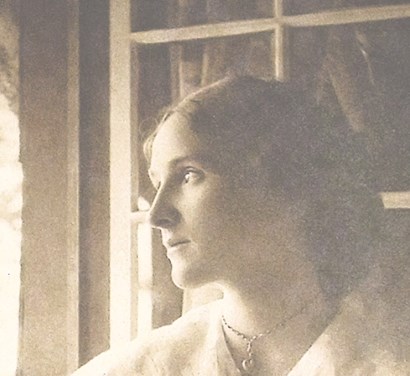Grace: The Remarkable Life of Grace Grattan Guinness
by Michele Guinness (Hodder & Stoughton, £9.99)
Grace, born in 1874, was the daughter of Charles Russell Hurditch. He was a leading figure in the Protestant sect known as the Plymouth Brethren. However, she was best known as the second wife of Henry Grattan Guinness (1835–1910).
Taney-born Henry Grattan, was the grandson of the famous Arthur Guinness. After extensive travels abroad he returned to England, where in 1853 he experienced a profound religious conversion.
After his ordination in 1857 as an undenominational evangelist he spent the rest of his life as a preacher. He conducted successful preaching tours at home and around the world, becoming the most celebrated preacher in the Victorian era.
A prolific author, he published numerous books and scholarly articles on the Bible. He also founded the East London Institute for Home and Foreign Missions, which trained over 1,100 people.
Difference
Henry Grattan’s first wife, one of the first women evangelists and also a renowned missionary, died in 1898. Seven years later he married Grace.
Although there was a difference of 40 years between them Grace adapted to her new situation very quickly and became his soulmate and indefatigable assistant.
Immediately after their marriage she accompanied him on a five-year global missionary tour. Two years later Henry Grattan died. She had two sons and little money. No stranger to the rarefied atmosphere of the manse, Grace secured an appointment as a housekeeper in a vicarage in Rathdrum, Co. Wicklow. Later, tiring of secluded of rural Ireland, she ran a pension on Lake Geneva.
Then she became matron and bursar at a theological college, which prepared ministers for the evangelical wing of the Church of England. Here she passed some of the happiest years of her life; but this changed with the advent of World War I. Most of the students went to war as chaplains, many did not return and those who did often had horrific injuries.
In her diary, Grace indicated the devastating impact of the two World Wars on the women of these islands. They lost fathers, husbands, sons, brothers. In one family alone, a widowed mother lost all her six sons.
The war effectively closed the college. Grace next acquired and ran a small, exclusive, private hotel in Kensington, but also worked in the Registration Office in London. Finally, before retiring, she did a stint as matron in a boys’ boarding-school in Scotland.
Grace was a talented and prolific writer: writing hundreds of letters to family, friends and the press. She was also a dedicated diarist and had a book published in 1935 under the pen name Septima: entitled The Peculiar People, it described the restrictions which membership of the Plymouth Brethren placed on Grace and her co-religionists. The book dismayed her family and members of the sect; but was favourably reviewed by the secular press and G.K. Chesterton’s Weekly.
Recently Michele Guinness, wife of Grace’s grandson, discovered a cache of her diaries and other writings and has crafted them into this fascinating narrative of a truly remarkable lady.
Ecumenism
Grace was a woman of her time, when on either side of the Reformation divide not even the slightest sign of ecumenism appeared on the horizon. Hence for her and her fellow-evangelical Protestants pagans and papists had both to be saved for God.
Nor had she much regard for the Irish. In noting that Countess Markievicz was the first woman to be elected to Westminster but had not taken her seat she commented: “So typical of the contrary Irish.”
It was a fortunate happenstance that Grace’s diaries were rescued as, apart from casting light on her historic extended family, in them she provides a superb social commentary on her times.


 Grace Grattan Guinnness
Grace Grattan Guinnness 